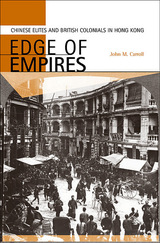
With the Qing Dynasty reform efforts (1901–1911), abolition of the civil service examination (1905), and the end of the monarchy (1912), the first three decades of the twentieth century brought important changes to the elite of Zhejiang Province. This book examines the social backgrounds, public activities, careers, and decision-making of local and provincial elites—that is, nonprofessional men who had taken on public duties when the multiplying problems of government had resulted in a general breakdown of public functions.
While elites in early twentieth-century China have often been caricatured as militarists, corrupt bureaucrats, evil landlords, and ineffectual reformers, they have not been clearly understood or closely analyzed. Since the seventeenth century, elites had been assuming increasing responsibility for funding and managing public projects, and by the twentieth century had expanded their activities still further. In the first three decades of the century, they experienced substantial personal and communitarian development; it was the structures and processes developed by these elites that subsequent regimes—Guomindang, Japanese, or Communist—had to build upon and adapt.
Keith Schoppa divides the counties of Zhejiang Province into four zones according to level of political and economic development and scrupulously analyzes the complex processes of remolding society at the local and provincial levels. By delving beneath the heroic figures and large movements of Chinese political life in this century, he reveals the common factors that make China a part of the worldwide story of reconstruction, reform, and developmental change.

In an engaging, revisionist study, John M. Carroll argues that in the century after the Opium War, Hong Kong's colonial nature helped create a local Chinese business elite.
By the end of the nineteenth century, the colonial government saw Chinese businessmen as allies in establishing Hong Kong as a commercial center. The idea of a commercially vibrant China united them. Chinese and British leaders cooperated on issues of mutual concern, such as the expansion of capitalism and political and economic directions for an ailing China.
These Chinese also found opportunities in the colonial system to develop business and commerce. In doing so, they used Hong Kong's strategic position to underscore their own identity as a distinctive group unlike their mainland counterparts. Nationalism took on a specifically Hong Kong character. At the same time, by contributing to imperial war funds, organizing ceremonies for visiting British royalty, and attending imperial trade exhibitions, the Chinese helped make Hong Kong an active member of the global British Empire.
In Edge of Empires, Carroll situates Hong Kong squarely within the framework of both Chinese and British colonial history, while exploring larger questions about the meaning and implications of colonialism in modern history.
READERS
Browse our collection.
PUBLISHERS
See BiblioVault's publisher services.
STUDENT SERVICES
Files for college accessibility offices.
UChicago Accessibility Resources
home | accessibility | search | about | contact us
BiblioVault ® 2001 - 2024
The University of Chicago Press









